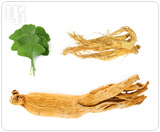 Surgically-induced menopause can be a more intense experience than natural menopause for many women. While most women experience gradual decreases in the production of estrogen and other hormones, having a hysterectomy throws your body into the change all at once. However, if you’ve recently undergone this operation, there are a few tips that can make your sudden menopause a little easier to endure. Keep reading to learn more.
Surgically-induced menopause can be a more intense experience than natural menopause for many women. While most women experience gradual decreases in the production of estrogen and other hormones, having a hysterectomy throws your body into the change all at once. However, if you’ve recently undergone this operation, there are a few tips that can make your sudden menopause a little easier to endure. Keep reading to learn more.
Exercise
Once you’ve made a physical recovery from your operation, you should get back into a workout routine. Along with the halting of your hormone production, a hysterectomy can bring feelings of anxiety, depression, and stress. If you’ve had a surgically induced menopause, all of these emotions can hit you at once. Exercising will produce the endorphins that you’ll need to stay emotionally balanced. Make sure that you don’t overdo it, though. High-impact workouts will raise your heart rate too much and can wreck your hormonal progress.
Go green
Try to stay away from chemically produced xenoestrogens. This faux hormone is found in many things you use on a daily basis from your beauty products to the plastic bottles from which you drink your water. Although you may not know it, you absorb these chemicals through your skin and they have a way of sneaking into the food you heat up in plastic containers. Because you’re working so hard at balancing your hormones naturally, you won’t want to disturb that balance by absorbing too many of these.
Eat a balanced diet
As in every case, it’s a good idea to pay special attention to the foods you eat after your hysterectomy. Especially since you’ll need to nourish your healing body and fight off menopausal weight gain, you should opt for protein-packed foods and lots of fiber. Some doctors also recommend increasing the amount of soy in your diet since it is a natural source of phytoestrogen that can help make up for the estrogen that your body is no longer producing.
Try natural remedies

There are numerous natural herbs that women can take to relieve the symptoms of menopause. Herbs like black cohosh, ginseng, and dong quai are often recommended by traditional herbalists to improve estrogen deficiency and deal with problems like hot flashes and memory lapses. However, be cautious of possible side effects when taking these herbs.
Consider hormone replacement
If these methods don’t bring you menopausal relief, talk to your doctor about hormone replacement therapy (HRT). They should be able to explain the different hormones that may be prescribed or refer you to a specialist who can.
Additional Information
After a hysterectomy, you may experience deficiencies of estrogen, progesterone or testosterone. Click on the following link to learn more estrogen deficiency.
Share This |
|---|
Our Readers also liked
- Signs of a lack of estrogen 818 views
- How to increase Estrogen hormone levels 615 views
- Understanding Low Estrogen Levels 387 views